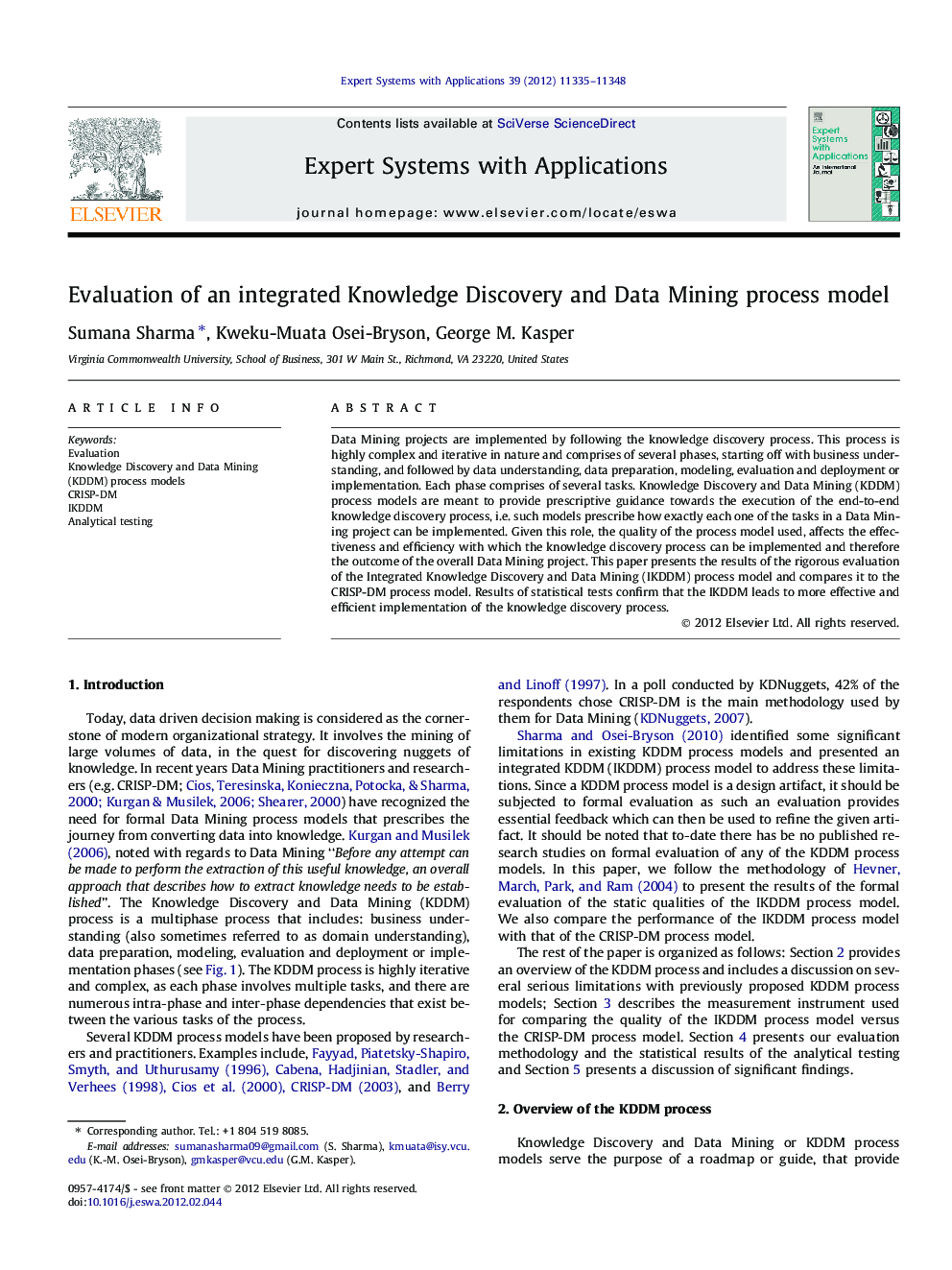| Article ID | Journal | Published Year | Pages | File Type |
|---|---|---|---|---|
| 383473 | Expert Systems with Applications | 2012 | 14 Pages |
Data Mining projects are implemented by following the knowledge discovery process. This process is highly complex and iterative in nature and comprises of several phases, starting off with business understanding, and followed by data understanding, data preparation, modeling, evaluation and deployment or implementation. Each phase comprises of several tasks. Knowledge Discovery and Data Mining (KDDM) process models are meant to provide prescriptive guidance towards the execution of the end-to-end knowledge discovery process, i.e. such models prescribe how exactly each one of the tasks in a Data Mining project can be implemented. Given this role, the quality of the process model used, affects the effectiveness and efficiency with which the knowledge discovery process can be implemented and therefore the outcome of the overall Data Mining project. This paper presents the results of the rigorous evaluation of the Integrated Knowledge Discovery and Data Mining (IKDDM) process model and compares it to the CRISP-DM process model. Results of statistical tests confirm that the IKDDM leads to more effective and efficient implementation of the knowledge discovery process.
► Knowledge Discovery and Data Mining process models provide prescriptive guidance. ► They describe ‘how to’ implement the complex and iterative Data Mining project. ► Quality of process model selected, affects the overall outcome of the project. ► We evaluate IKDDM process model and compare it to CRISP-DM, a leading process model. ► IKDDM is more effective and efficient in executing tasks of Data Mining projects.
